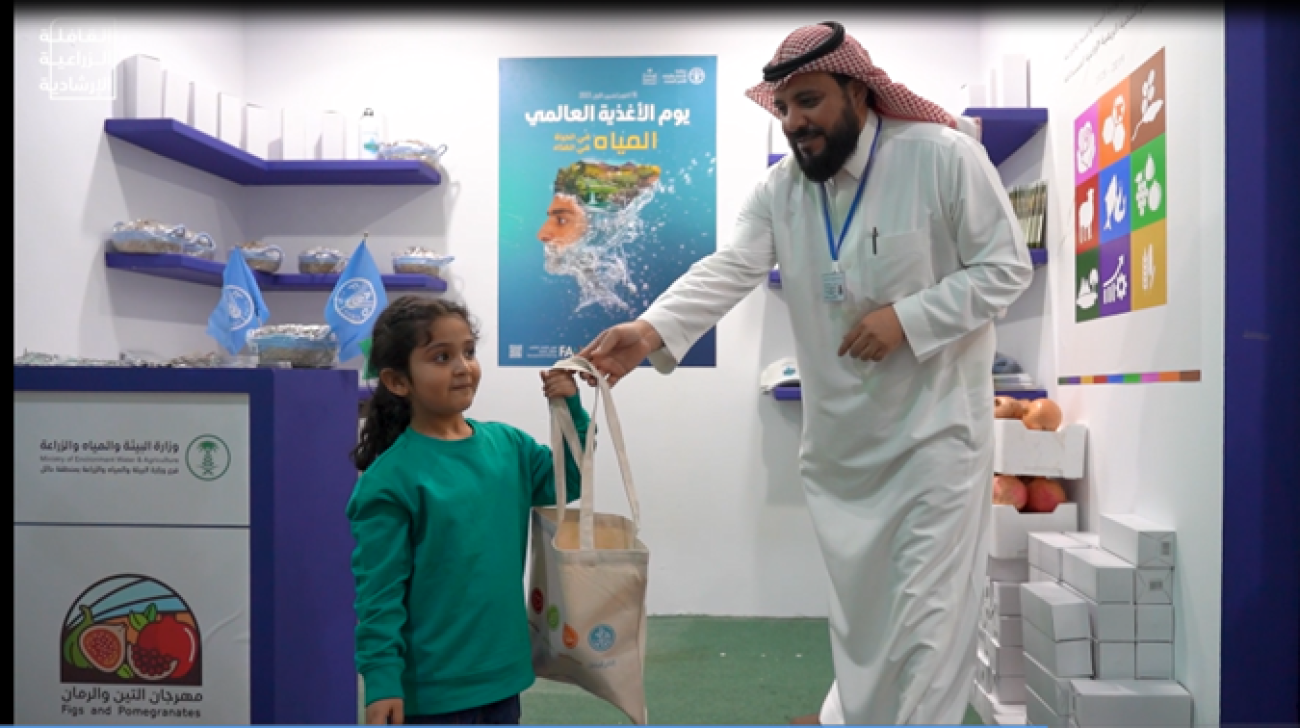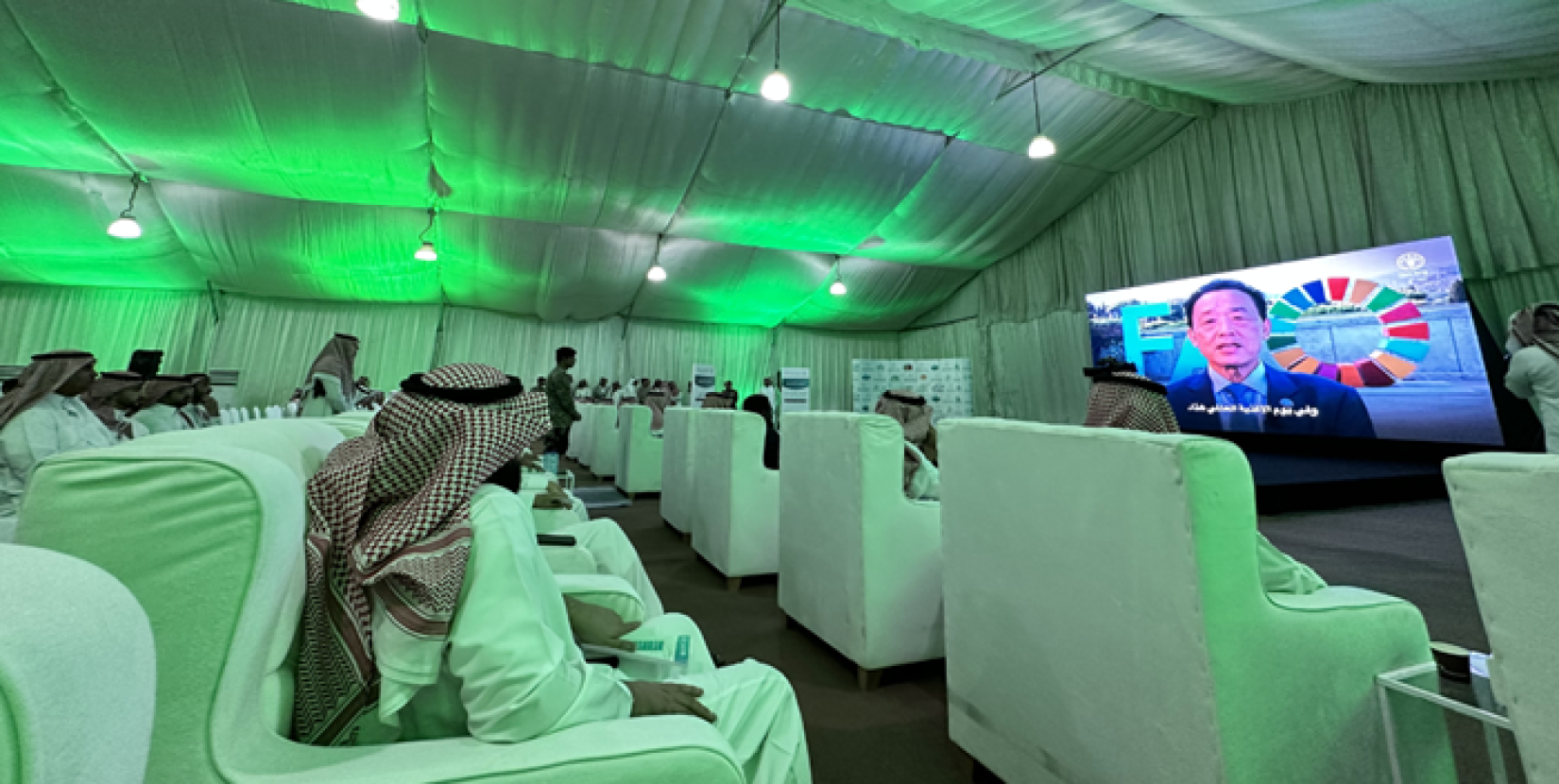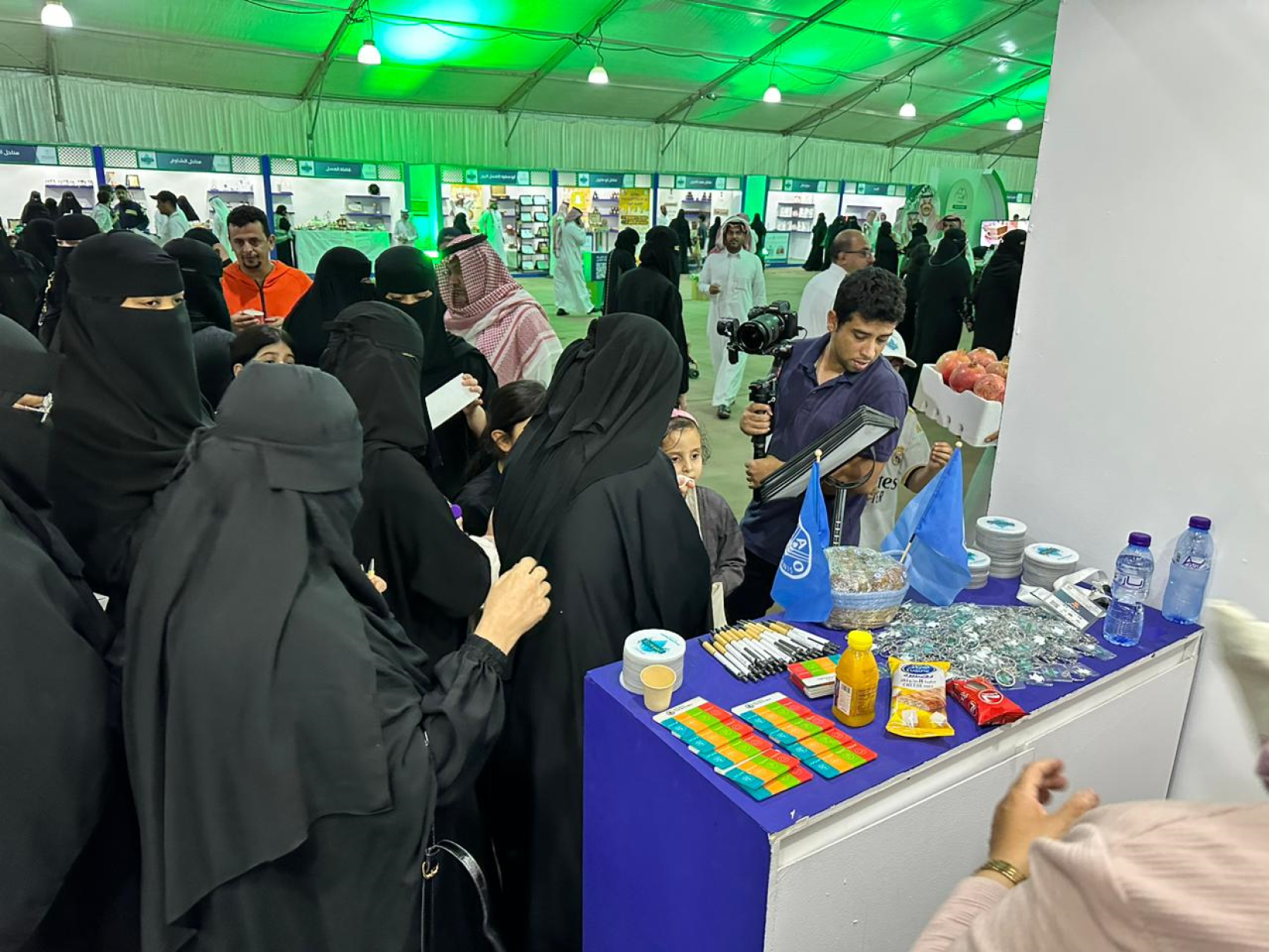World Food Day 2023 Celebrations Focus on Water Scarcity and Sustainable Agriculture

The event emphasized cooperative strategies and showcased innovative agricultural practices, reinforcing their commitment to sustainable water & food security.
On the occasion of World Food Day 2023, the Ministry of Environment, Water, and Agriculture of Saudi Arabia, in collaboration with the Food and Agriculture Organization of the United Nations (FAO), organized a grand celebration in Hail. The event was held under the auspices of His Royal Highness Prince Abdulaziz bin Saad bin Abdulaziz Al Saud, the Prince of Hail. This celebration was made possible with the support of partners, including Hail Region Municipality, Almarai, National Seeds Agricultural Production Company (NSPC), LEHA Agriculture, and JAL and also served as the inauguration of the agricultural extension convoy activities in the region, known as the "القافلة_الزراعية_الإرشادية" (Agricultural Extension Convoy) and Pomegranate and Figs Festival.

FAO Dedicates World Food Day to Raise Awareness
Since November 1979, during the 20th conference of the FAO, member countries have dedicated October 16th of each year as World Food Day, with the aim of raising awareness about promoting sustainable food systems and the responsible use of resources. The focus of this year's celebration was on the theme "Water is Life, Water is Food. Leaving No One Behind," highlighting the crucial role that water plays in our lives and the future of the planet.
In his opening speech, HRH Prince Abdulaziz bin Saad bin Abdulaziz emphasized the importance of water and food security, particularly in the Hail region. HRH Prince welcomed innovative agricultural approaches and initiatives that align with the goals of the Kingdom of Saudi Arabia and the global goals to achieve water provision, agricultural production, and economic advancement. The conservation of water and its uses has become essential goals that require careful and responsible handling. HRH Prince also acknowledged the collective efforts of the Ministry of Environment, Water and Agriculture, FAO, cooperative community, and related government departments and agencies in achieving sustainable rural agricultural development, emphasizing the significance of the agricultural extension convoy and its record-breaking achievement as the longest convoy in the Guinness World Records, covering more than 8 000 km.

Saudi Arabia at the Forefront of Addressing Water Scarcity
Ayman Omer, FAO Programme Director, highlighted the crucial role of smallholder farmers in the agricultural sector. He emphasized that as agriculture consumes around 72% of the world's freshwater resources, particularly in the water-scarce Arab region, innovative approaches in food and agricultural production are necessary to optimize water usage. Addressing this challenge requires collaborative efforts among stakeholders, scientific research, technological advancements, and policy reforms. Ayman further added that Saudi Arabia has been at the forefront of addressing water scarcity and implementing sustainable agriculture practices. This is proven through the Saudi Arabia Vision 2030 initiative, which encompasses various policies, initiatives, and programs, including the agricultural sector, highlighting the importance of water and its efficient utilization.
The Ministry, along with other government and private institutions, actively works to maximize the benefits of water through rainwater harvesting, reservoir and dam construction, wastewater treatment for reuse, and advanced water-saving technologies. Acknowledging the impact of climate change on water availability, the Kingdom launched the Saudi Green Initiative and the Middle East Green Initiative in 2021. These initiatives aim to lead regional sustainability efforts and address the consequences of climate change in the region. Ayman briefed that, in collaboration with FAO, Saudi Arabia has implemented several projects to enhance national water management capabilities, improve irrigation efficiency, and explore innovative irrigation models for small-scale farms. He added that FAO also works globally with countries and partners to build national capacities, develop tools, and assist policymakers in achieving maximum water productivity. One such tool is the Water Productivity (WaPOR) portal, which utilizes satellite technology to estimate groundwater consumption by measuring water usage in crop and plant growth.

World Food Day serves as a Platform for Knowledge-Sharing and Networking
The World Food Day celebration in Hail served as a platform for knowledge-sharing, networking, and showcasing innovative agricultural practices. It brought together farmers, agricultural experts, stakeholders, and community members to discuss challenges and explore solutions related to water scarcity, food security, and sustainable agriculture. During the four-day event, FAO Cooperative Expert Khaled AlDayoud conducted workshops to raise awareness about agricultural cooperatives. The workshop focused on establishing and operating agricultural cooperatives, aiming to enhance the cooperative movement in the region, particularly women's inclusion. In addition, a demonstration of apiaries was showcased at Abdullah Bayan Tahmour AlGhazi's farm, where FAO Beekeeping Expert Hassan AlBahareth shed light on beekeeping and preparing beehives for winter in a bee apiary, followed by an inspiring story about organic beekeeping, its benefits and the importance of adopting sustainable techniques. FAO Tropical fruit expert Yahya Hammam shared some good agricultural practices in the cultivation of pomegranates, figs and papayas in governorates of Hail region. Furthermore, insights into advanced irrigation systems were also presented, emphasizing the significance of efficient water management in agriculture. FAO Expert Eman Soliman shared knowledge and best practices to optimize water usage and minimize waste.
Long-standing Partnerships
Through joint efforts and partnerships, the Ministry of Environment, Water, and Agriculture, FAO, and supporting organizations aim to drive positive change and create a sustainable future for agriculture and food production in Hail and beyond. The World Food Day celebration in Hail was a testament to their commitment and dedication to promoting water and food security and supporting the cooperative community for resilient rural development. In conclusion, as the world faces increasing challenges regarding food security and water scarcity, it is essential for everyone to contribute to informed decision-making and sustainable water consumption practices. The World Food Day 2023 event in Hail concluded remarkably successfully and has proven to be a significant step towards addressing challenges and paving the way for a sustainable future of food and humanity on Earth.




